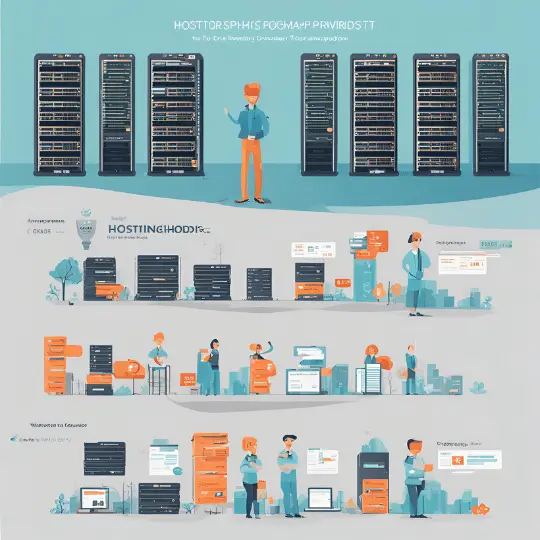Introduction to Project Management Resources
Project management resources are the essential elements required to execute, manage, and complete projects effectively. These resources encompass a wide range of categories, each playing a crucial role in ensuring project success. At its core, project management resources can be defined as the assets—both tangible and intangible—that are utilized throughout the project lifecycle to achieve the desired objectives.
One of the primary reasons project management resources are vital is their direct impact on the efficiency and effectiveness of project execution. Proper allocation and management of these resources can significantly influence project outcomes, including timelines, costs, and overall quality. Without adequate resources, even the most well-conceived projects can falter.
Human resources are often considered the backbone of any project. This category includes project managers, team members, stakeholders, and any other personnel involved. Effective human resource management ensures that the right people with the appropriate skills are assigned to tasks, fostering collaboration and productivity.
Financial resources are another critical type. These include the budget allocated for the project, covering expenses such as salaries, equipment, and materials. Proper financial management is essential to avoid overspending and ensure that the project remains within budget constraints.
Tools and software represent the technological resources that facilitate project management. These can range from project management software like Microsoft Project or Trello to specialized tools for communication, scheduling, and documentation. Utilizing the right tools can streamline processes and enhance project coordination.
Informational resources involve the data and knowledge required to make informed decisions. This includes project documentation, market research, and historical data. Access to accurate and relevant information helps in planning, risk management, and decision-making processes.
In summary, effective management of project management resources is indispensable for the successful completion of any project. By understanding and optimizing the use of human, financial, technological, and informational resources, project managers can significantly improve their chances of achieving project goals and delivering high-quality results.
Essential Tools and Software for Project Management
Effective project management necessitates the use of specialized tools and software designed to streamline planning, execution, and monitoring of projects. Among the most notable project management software are Microsoft Project, Asana, and Trello, each offering unique features tailored to different project needs.
Microsoft Project is renowned for its comprehensive suite of tools that support advanced project planning and scheduling. It includes features such as Gantt charts, resource management, and project tracking, making it ideal for complex projects requiring detailed oversight. Asana, on the other hand, excels in task management and team collaboration. Its user-friendly interface allows for easy assignment of tasks, tracking progress, and facilitating communication within teams. Trello, known for its intuitive Kanban boards, is perfect for visualizing project workflows and managing smaller tasks efficiently.
In addition to these software solutions, essential project management tools include Gantt charts and Kanban boards. Gantt charts offer a visual timeline representation of a project, helping managers to track the progress and dependencies of various tasks. They are particularly useful in identifying potential bottlenecks and ensuring that projects remain on schedule. Kanban boards, popularized by Trello, provide a clear visual representation of workflow stages, enabling teams to manage tasks through a systematic process of to-do, in-progress, and completed tasks.
Time-tracking software is another critical component in the project manager’s toolkit. Tools like Toggl and Harvest allow teams to log hours spent on tasks, providing valuable insights into productivity and resource allocation. This data can be instrumental in optimizing project timelines and ensuring that resources are used efficiently.
Choosing the right project management tools depends on the specific needs of a project. Factors to consider include the project’s complexity, team size, and preferred workflow methodologies. It is also essential to evaluate the integration capabilities of the software with other tools already in use. By selecting the appropriate tools, project managers can significantly enhance productivity, ensure effective collaboration, and achieve project goals efficiently.
Human and Financial Resources in Project Management
Effective management of human and financial resources is pivotal to the success of any project. Human resources encompass the team members who contribute their skills and expertise, while financial resources refer to the budget allocated for project execution. Proper handling of both these resources ensures that the project runs smoothly and achieves its objectives within the stipulated time and budget.
Managing team members effectively begins with strategic team building. Assembling a team with complementary skills is crucial. It is important to assign roles and responsibilities that align with each team member’s strengths and expertise. Clear communication of expectations and goals fosters a sense of accountability and direction. Additionally, maintaining motivation and productivity within the team requires ongoing engagement, recognition of achievements, and opportunities for professional growth.
Team building activities can enhance cohesion and collaboration. Regular meetings, workshops, and team-building exercises can help in fostering a collaborative environment. Encouraging open communication and feedback allows team members to voice their concerns and suggestions, leading to a more dynamic and efficient workflow.
Financial resources, on the other hand, require meticulous planning and monitoring. Budgeting and cost estimation are fundamental steps that need to be addressed during the initial phase of project management. Accurate cost estimation involves assessing all potential expenses, including materials, labor, and contingencies. A detailed budget serves as a financial blueprint, guiding the allocation of funds throughout the project lifecycle.
Financial monitoring is essential to ensure that the project remains within budget. Regular financial reviews help in identifying any deviations from the planned budget, allowing for timely corrective actions. Utilizing project management software for financial tracking can provide real-time insights and facilitate better decision-making.
Real-world examples illustrate the importance of resource allocation. For instance, in a construction project, the timely procurement of materials and efficient labor management are critical to meeting project deadlines. Similarly, in software development, allocating resources to phases like coding, testing, and deployment ensures a balanced workload and timely delivery.
In conclusion, the effective management of human and financial resources is a cornerstone of successful project management. By adopting best practices in team building, role assignment, budgeting, and financial monitoring, project managers can enhance productivity and achieve project goals efficiently.
Informational Resources and Knowledge Management
In the realm of project management, the effective utilization of informational resources and knowledge management is pivotal to achieving project success. It is essential to gather, store, and utilize information in a systematic manner to support project goals. Proper management of these resources can significantly enhance decision-making processes, improve efficiency, and foster innovation within the project team.
Project documentation is one of the fundamental tools for managing informational resources. Comprehensive project documentation, which includes project plans, schedules, budgets, and meeting minutes, serves as a repository of crucial information. This documentation not only aids in tracking progress but also provides a reference point for future projects. It ensures that all team members are aligned and have access to the same information, reducing the likelihood of miscommunication and errors.
Data analysis is another critical component of knowledge management in project management. By analyzing data collected throughout the project lifecycle, project managers can identify trends, measure performance, and make informed decisions. Techniques such as SWOT analysis, risk assessments, and performance metrics are instrumental in transforming raw data into actionable insights. These insights can then be used to adjust project strategies, allocate resources more effectively, and mitigate potential risks.
Knowledge-sharing practices also play an integral role in managing informational resources. Encouraging an environment where team members freely share their expertise and experiences can lead to innovative solutions and continuous improvement. Tools such as collaborative platforms, knowledge bases, and regular team meetings facilitate the exchange of information and ideas. By promoting a culture of knowledge sharing, project managers can ensure that valuable insights are not lost and can be leveraged to enhance project outcomes.
Effective communication is paramount in the management of informational resources. Clear and consistent communication channels within the project team and with stakeholders are essential to ensure that everyone is on the same page. Regular updates, progress reports, and stakeholder meetings help maintain transparency and build trust. Utilizing communication tools such as email, project management software, and instant messaging can streamline information flow and reduce the risk of misunderstandings.
In conclusion, the strategic management of informational resources and knowledge is crucial for the success of any project. By leveraging project documentation, data analysis, knowledge-sharing practices, and effective communication, project managers can support project goals and drive successful outcomes.


